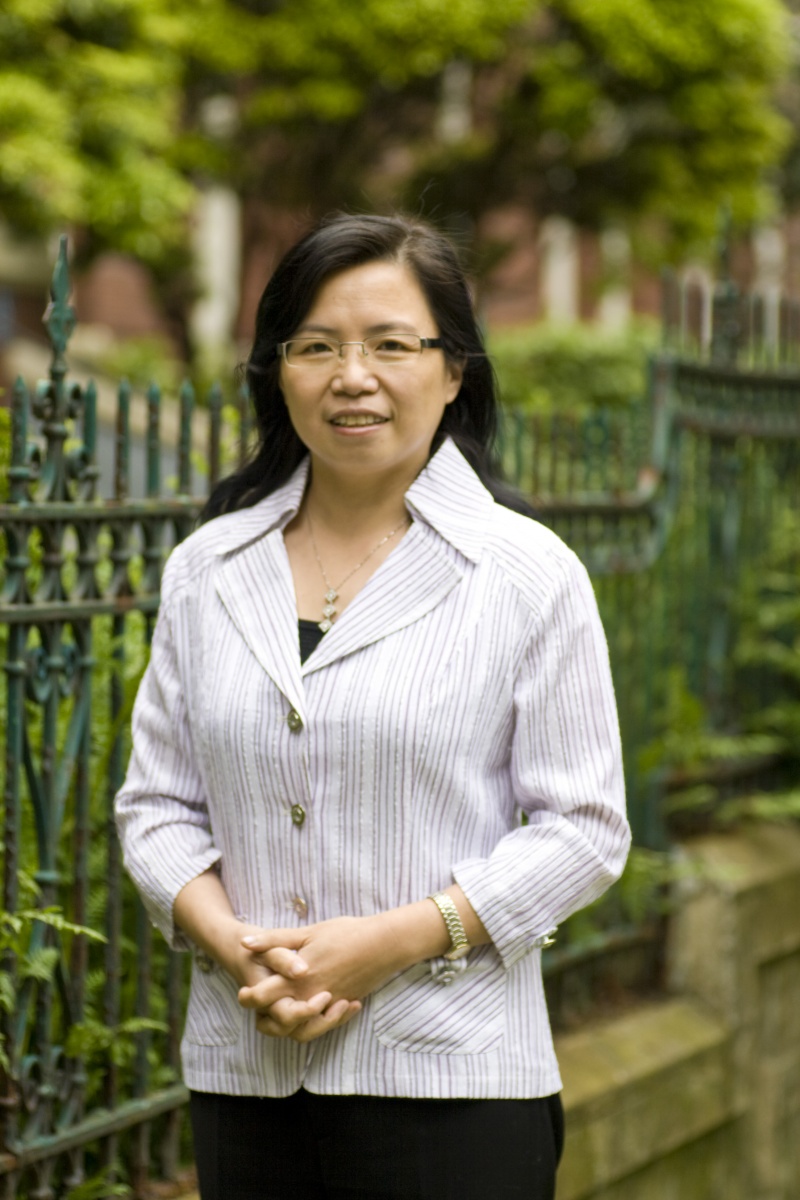 Dr. Honglin Luo is studying how to use viruses to treat lung cancer. Viruses can be modified depending on the type of tumor and have fewer side effects for the patient than traditional therapies.
Dr. Honglin Luo is studying how to use viruses to treat lung cancer. Viruses can be modified depending on the type of tumor and have fewer side effects for the patient than traditional therapies.
Can you explain why traditional therapies do not have a high success rate with non-small cell lung cancer?
Lung cancer is the second most common cancer for both men and women in Canada. It kills more patients than any other cancer. Roughly 85% of all lung cancers are non-small cell lung cancer (NSCLC). Most patients with NSCLC are diagnosed late when the cancer is already advanced, with little hope of surgical removal. The overall 5-year survival rate for NSCLC is only about 17%. The main reason for the low survival rate is because advanced NSCLC responds poorly to current chemotherapies.
When did you begin focusing your research on anti-cancer virotherapy and why?
I have been studying coxsackievirus and diseases caused by this group of viruses for almost 15 years. I began focusing my research on anti-cancer virotherapy about one year ago when we and others found that coxsackievirus type B3 (CVB3) potently destroys a panel of different human cancer cells, in particular lung cancer cells. So I approached Dr. William Jia to seek his expert collaboration to take the idea of developing CVB3 as a therapeutic tool for lung cancer further. Dr. Jia is a UBC professor with over 20 years experience in virus-based cancer therapy.
How does a virus like CVB3 affect lung cancer cells and why is it more effective than traditional therapies?
It appears that a virus like CVB3 kills the cancer cells in two major ways. First, CVB3 preferentially infects and replicates in actively dividing cells, such as cancer cells, rather than dormant cells. In doing so, it directly destroys these cancer cells. Secondly, viral infection can stimulate a host anti-tumor immune response, which allows for long-term cancer destruction. The most important advantage of a virus over other cancer therapies, such as chemotherapy and radiotherapy, is that we can change the genetics of candidate viruses to increase their potency against specific types of tumors, and to eliminate possible side effects of cancer therapies.
What stage is your study currently at and when is real-world application of this treatment anticipated?
Our study is currently at a relatively early stage. In collaboration with Dr. William Lockwood at the BC Cancer Research Centre, we discovered that CVB3 is an extremely powerful anti-tumor virus. It potently destroys various types of lung cancer cells, in particular KRAS mutant cells, with limited effects on healthy lung cells. We are currently testing the effectiveness of CVB3 treatment for lung cancer in animal models. If therapeutic effects are achieved, we expect that the results of this project could be translated into clinical application in the near future. We also hope to expand the findings of this project to the treatment of other types of cancer.
What would this real-world application of the therapy look like?
In a real-world situation, we expect to deliver this virus to patients suffering from lung cancer through different routes, such as inhalation and IV injection. Lung cancer would also be treated by direct injection during surgery, or in combination with other conventional chemotherapies to produce a synergistic effect.
The BC Lung Association grants a million dollars annually to physicians and scientists doing research in British Columbia and has been a funder of Dr. Luo’s research.
